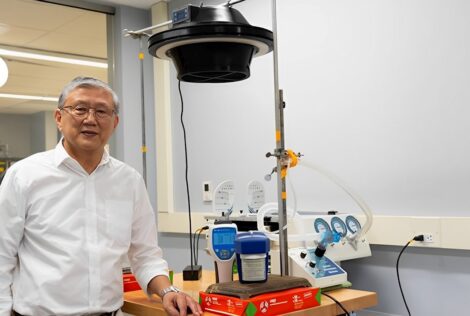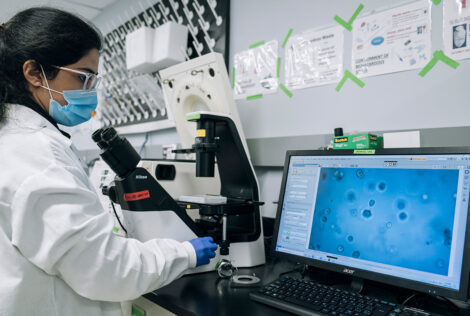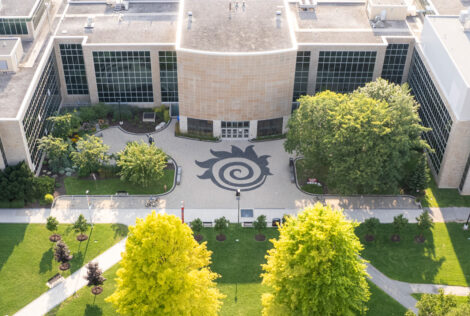
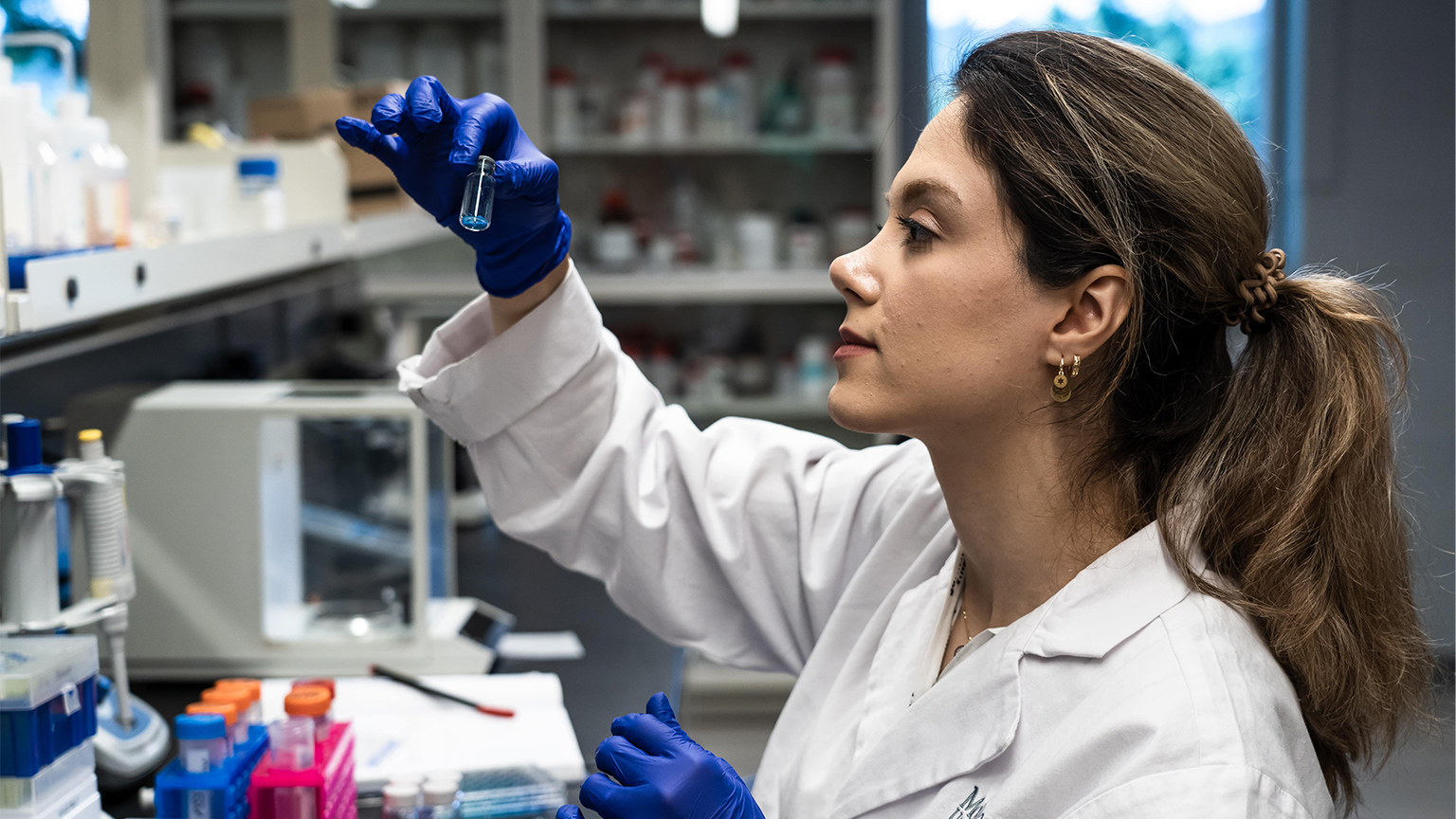
Carlos Filipe and Sahar Esmaeili Samani are part of a team working with vaccine manufacturers to store and transport vaccines safely without refrigeration. They speak about the research and the startup, Elarex, on the Big Ideas for a Changing World podcast.
Last year, a team of McMaster researchers made headlines with their invention which allows vaccines to be stored safely and affordably for weeks at a time at temperatures up to 40C.
Now, Carlos Filipe, co-author of the research paper is part of a five-person startup company called Elarex Inc. bringing this technology to market, opening the doors for life-saving anti-viral vaccines to reach remote and impoverished parts of the world.
“This has been a long journey – the research started when we had the last outbreak here in Canada with SARS,” says Filipe, chair of Chemical Engineering at McMaster.
The technique involves combining the vaccine with two sugars, pullulan and trehalose, to make a powder or film agent. A clinician would then mix the agent with water to administer the vaccine to a patient.
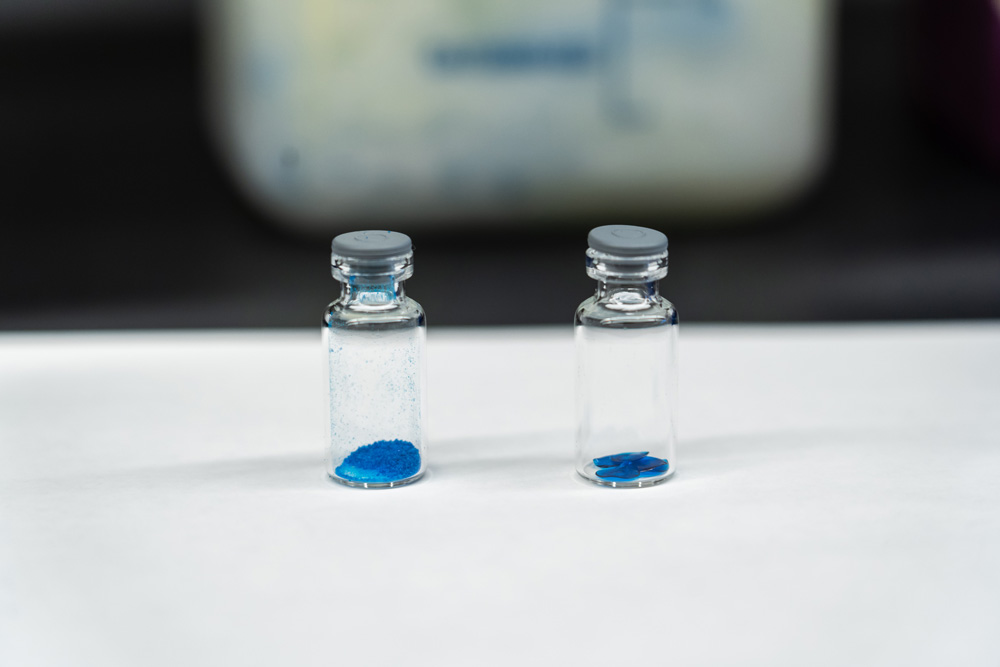
“We have developed a precise formulation for stabilization of vaccines that can eliminate the need for refrigerated distribution systems, which account for up to 80 per cent of the cost of vaccination,” says Sahar Esmaeili Samani, a research engineer at Elarex.
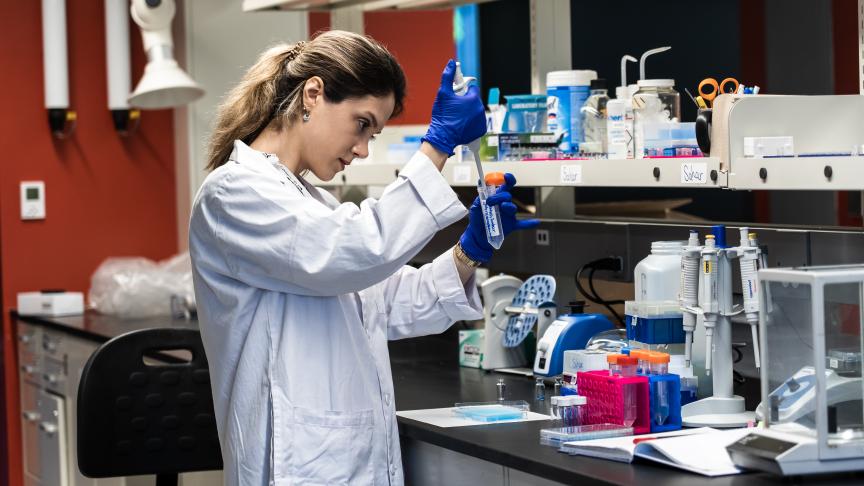
“This technology has the potential to really change the way vaccines are delivered and administrated around the world,” she says.
With the world waiting for an effective vaccine for COVID-19, Filipe says this technology has potential to play a role in increasing the shelf life of large quantities of vaccines.
“We’re pretty confident that we can adjust the technology to make it work with a COVID-19 vaccine,” he says. “It might play an important role in terms of building stock for vaccines that companies produce, where there’s a time delay between production and distribution.”
The Elarex team is also working on applying the technology for vaccines for animals.
“When a single person benefits from this and gets vaccinated when they otherwise would not have, that’s a life protected,” Filipe adds. “That will be my dream come true.”
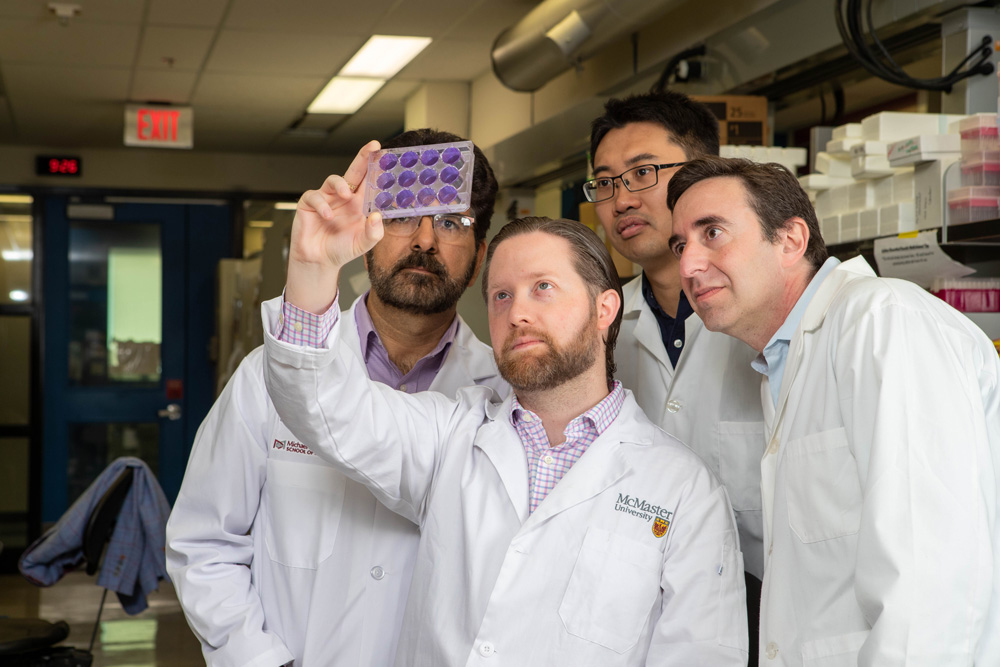
Read more about this research in Scientific Reports, and check out co-authors (L to R in above photo) Ali Ashkar, Matthew Miller, Vincent Leung and Carlos Filipe featured in The Globe and Mail. The above photo was taken in 2019.
Hear more about the research and startup on Big Ideas for a Changing World. Available on YouTube, Spotify, Apple Podcasts and Google Podcasts.

